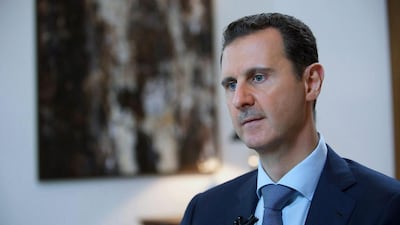While most observers are considering the repercussions of the Russian pullout from Syria on international politics and the balance of power in the region, some have highlighted the implications of such a retreat for ISIL and Hizbollah.
"In the midst of all the preoccupation with the Russian withdrawal and its motivations, one must not forget the reverberations of this pullout on ISIL in Syria, as it looks to be one of the first to benefit from the course of events," wrote Yussuf Al Dini in the pan-Arab daily Asharq Al Awsat.
The writer noted that, in areas under its control, the extremist group had undertaken widespread acts of violence against ethnic and religious minorities and other people who rejected its ideology.
“The fact is that any incomplete or limited intervention against ISIL will encourage its expansion and increase its fictitious victories and its number of followers.”
Al Dini said Russia had admitted as much in its statement about its withdrawal, when it remarked that ISIL would continue to be present and influential for an indefinite period.
The statement failed to mention that ISIL’s expansion had continued even after the intervention of Syrian regime forces, Shiite militias and even Russia’s own troops, which had targeted moderate opposition groups.
The Russian withdrawal had allowed Iranian-backed Shiite militias to spread.
Many of those militias received support from the Revolutionary Guards and benefited from the experience of Hizbollah and the other militias in Iraq that were controlled by Tehran, Al Dini wrote.
“Symbolically, Hizbollah is now a key partner of the regime and all the militias it created and supported brandish its flag alongside the flag of the regime.”
The writer concluded that this was “beyond a mere alliance” and had given Iran strong influence in the heart of Syria, despite it being an Arab country.
Writing in the pan-Arab daily Al Hayat, columnist Salem Nassar remarked that "those reporting from Geneva are saying the peace talks will not solve the Syrian crisis". This would be the case for as long as some of the involved parties declined to attend the sessions and "dispatch mere representatives that have no decision-making power".
The writer noted that Syrian leader Bashar Al Assad had rejected the idea of stepping down and had, instead, “found it sufficient to enter into an alliance with Russia, Iran, Hizbollah and the remnants of his army”.
Not so long ago, Mr Al Assad had announced that he wanted to retrieve all of Syria’s territory. His words “served as pointers for his Russian allies, who raised the idea of federalism and they still support this political recommendation”, Nassar noted.
“Europeans believe that Russia supported the Geneva talks and announced its partial military withdrawal in order to avoid the fate of the United States in Iraq and Afghanistan. This is why it favoured a political solution, as it is the only way to achieve its ambitions and gains in Syria.”
The writer said that Russian president Vladimir Putin “expects Moscow to turn into a wailing wall for all leaders who were let down by US president Barack Obama under the pretext of maintaining a fake democracy”.
He continued: “As for Washington, it believes that the partial withdrawal announced by Mr Putin is no more than a media attempt to save face and claim that Russia has achieved its goals by securing the rule of Mr Assad.
“Some observers believe that Mr Putin will be forced to return, if he really wishes to maintain the Assad regime and prevent it from plummeting,” Nassar concluded.
* Translated by Carla Mirza
cmirza@thenational.ae

